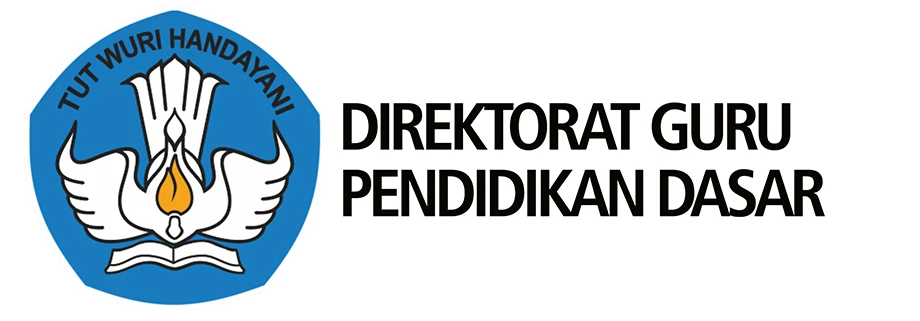Efektivitas Projek Penguatan Profil Pelajar Pancasila Terhadap Keterampilan Berpikir Tingkat Tinggi Siswa Sekolah Dasar
DOI:
https://doi.org/10.26811/didaktika.v8i3.1620Abstract
In this complex era, individuals must possess higher-order thinking skills (HOTS).However, many facts indicate that the HOTS of students in Indonesia are low. This study aims to determine the effectiveness of the Projek Penguatan Profil Pelajar Pancasila (P5) on HOTS of elementary school students. A quantitative approach with a one-group pretest-posttest design was employed. The instrument used was a test of higher-order thinking skills, reinforced by formative assessments in the form of P5 rubrics. Purposive sampling was used, with the sample consisting of fifth-grade students from SDN Baros Mandiri 7 for the 2022/2023 academic year. Data analysis was conducted using the T-test. Results showed a significant difference between pretest and posttest scores, with a significance value of 0.001. The average posttest score was 73, categorized as good, while the average pretest score was 32, categorized as poor. Formative assessment scores supported this positive outcome, with all P5 rubric categories being classified as good. This finding shows that the development of HOTS is not only the domain of intracurricular activities, but can also be done through co-curricular activities such as P5. The conclusion of this study is that P5 is effective in improving students' HOTS.
References
Abdullah, A. H., Mokhtar, M., Halim, N. D. A., Ali, D. F., Tahir, L. M., & Kohar, U. H. A. (2017). Mathematics teachers’ level of knowledge and practice on the implementation of higher-order thinking skills (HOTS). Eurasia Journal of Mathematics, Science and Technology Education, 13(1), 3–17. https://doi.org/10.12973/eurasia.2017.00601a
Agustin, M., Pratama, Y. A., Sopandi, W., & Rosidah, I. (2021). Pengaruh Model Pembelajaran Radec Terhadap Keterampilan Berpikir Tingkat Tinggi Mahasiswa Pgsd. Jurnal Cakrawala Pendas, 7(1). https://doi.org/10.31949/jcp.v7i1.2672
Anfa, Q., Agnifia, D. N., & Astriawati, F. (2023). Improving undergraduate biology students’ critical thinking skills through a case study-based free inquiry module. BIO-INOVED : Jurnal Biologi-Inovasi Pendidikan, 5(3), 314. https://doi.org/10.20527/bino.v5i3.16713
Asphar, F. Q., Hidayat, S., & Suryana, Y. (2021). Rencana Pelaksanaan Pembelajaran Berbasis Higher Order Thinking Skills di Sekolah Dasar. Jurnal Basicedu, 5(4), 2635–2643.
Azizah, A. N., Prayitno, B. A., & Nurmiyati. (2019). Penerapan Model Guided Inquiry Learning untuk Meningkatkan Kemampuan Berpikir Tingkat Tinggi Siswa Sma The Application of Guided Inquiry Learning Model to Improve Students ’ High-Order Thinking Skill. Bio-Pedagogi: Jurnal Pembelajaran Biologi, 8(1), 39–43.
Brookhart, S. M. (2010). How to Assess High-er Order Thinking Skills in Your Class-room. ASCD.
Chomaidi, S. (2018). Pendidikan dan pengajaran: strategi pembelajaran sekolah. In Gastronomía ecuatoriana y turismo local. (Vol. 1, Issue 69). Grasindo.
Chuen, T. W., Aris, B., & Abu, M. S. (2013). GLOOTT Model: A Pedagogically-Enriched Design Framework of Learning Environment that Helps to Improve Higher Order Thinking Skills. Information Technology, Education and Society, 12(2), 65–77. https://doi.org/10.7459/ites/12.2.05
Chung, J. E. (2017). Educational Opportunity for All: Overcoming Inequality throughout the Life Course. Educational Research and Innovation. In OECD Publishing.
Danang. (2011). Budaya Tertib Lalu Lintas. PT Balai Pustaka (Persero),.
Dipta, D., Haikal, M., Indah Nuraini, E., Fatima Virgiyanti, D., Fachriza, A., Jianggi Mahastu, P., & Ramadhani, A. (2023). Debating as a systematic teaching technique to promote HOTS (Higher Order Thinking Skill). English Teaching Journal: A Journal of English Literature, Linguistics, and Education, 11(2), 82–88. https://doi.org/10.25273/etj.v11i2.17838
Fasha, E. F., & Triyastuti, I. Y. (2022). Analisis kemampuan berfikir tingkat tinggi berbasis AKM numerasi. Dialektika Jurnal Pendidikan, 6(1), 1–7.
Fatimah, S. (2018). The Effect of Project Based Science Learning on PGSD Students ’ Creative Thinking Ability. Jurnal Pendidikan Indonesia, 7(2), 100–105.
Fitri, H., Dasna, I. W., & Suharjo, S. (2018). Pengaruh Model Project Based Learning (PjBL) Terhadap Kemampuan Berpikir Tingkat Tinggi Ditinjau dari Motivasi Berprestasi Siswa Kelas IV Sekolah Dasar. Briliant: Jurnal Riset Dan Konseptual, 3(2), 201. https://doi.org/10.28926/briliant.v3i2.187
Fitri, H., Fitria, Y., Solfema, & Sukma, E. (2023). Development of Teaching Materials Based on the Radec Model To Improve the HOTS of Grade V Elementary School Students. Jurnal Cakrawala Pendas, 9(1), 108–116.
Griffin, P., McGaw, B., & Care, E. (2012). Assessment and teaching of 21st century skills. In Assessment and teaching of 21st century skills (Vol. 9789400723, Issue September). https://doi.org/10.1007/978-94-007-2324-5
Gustina, G. (2023). Peningkatan Aktivitas dan Hasil Belajar Matematika Melalui Model Project Based Learning. Jurnal Didaktika Pendidikan Dasar, 7(1), 23–36. https://doi.org/10.26811/didaktika.v7i1.1009
Himawan, R., & Suyata, P. (2023). Analisis Sebaran Level Kognitif HOTS Berdasarkan Taksonomi Bloom pada Soal Penilaian Harian Materi Teks Pidato Persuasif di SMPN 1 Bambanglipuro Bantul. Stilistika: Jurnal Pendidikan Bahasa Dan Sastra, 16(1), 89. https://doi.org/10.30651/st.v16i1.14208
Hofmeyr, D. A. S. (2021). Intercultural Competence Development Through Co-Curricular and Extracurricular At-Home Programs in Japan. Journal of Studies in International Education. https://doi.org/10.1177/10283153211070110
Huang, L. (2017). Co-curricular activity-based intercultural competence development: students’ outcome of internationalisation at universities. Innovations in Education and Teaching International, 54(3), 184–193. https://doi.org/10.1080/14703297.2016.1184098
Ichsan, I. Z., Sigit, D. V., Rahmayanti, H., Purwanto, A., Rosyid, A., Suwandi, T., Ali, A., & Hermawati, F. M. (2020). Implementasi model pembelajaran ILMIZI dan peningkatan HOTS siswa SD berdasarkan gender pada pembelajaran lingkungan. Jurnal Pendidikan Ipa Veteran, 4(1), 2020.
Isbah, H., & Adi, B. S. (2024). The Influence of the Problem Based Learning (PBL) Learning Model Assisted by PhET Simulation Media to Increase HOTS of Class 6 Elementary School Students in Electrical Circuits. Jurnal Penelitian Pendidikan IPA, 10(4), 1847–1854. https://doi.org/10.29303/jppipa.v10i4.6225
Karuru, P., Sekolah Tinggi Ilmu Tarbiyah Togo Ambarsari Bondowoso, allim, Sekolah Tinggi Ilmu Tarbiyah Togo Ambarsari Bondowoso, S., Fatwa Setiawan, A., & Junaida Sekolah Tinggi Ilmu Tarbiyah Togo Ambarsari Bondowoso, S. (2023). Improving Students’ Higher Order Thinking Skills Through a Question and Answer Method. RETORIKA: Jurnal Ilmu Bahasa, 9(3), 340–349.
Lim, N. G. (2022). Developing High-Level Thinking. Clash of the Mind and Heart, 125–143. https://doi.org/10.1142/9789811252617_0009
Maarende, J., Masinambouw, D., & Siwi, K. (2022). Upaya Meningkatkan Motivasi Belajar Seni Rupa Melalui Pameran Karya Seni Siswa Kelas X Sma. Freire Elementary Education Journal, 1(01), 1–6.
Made, N., Indah, R., Bayu, G. W., & Rati, N. W. (2024). HOTS-Based Science Learning Outcomes Assessment Instrument for Measuring Elementary School Learning Outcomes. 29(1), 156–162.
Morogo, S. K. (2022). School Co-curricular Activities in Promotion of Peace Education in Public Day Secondary Schools in West Pokot County, Kenya. East African Scholars Journal of Education, Humanities and Literature, 5(3), 70–75. https://doi.org/10.36349/easjehl.2022.v05i03.001
Nugroho, R. A. (2018). HOTS (Kemampuan Berpikir Tingkat Tinggi: Konsep, Pembelajaran, Penilaian, dan Soal-soal). PT Gramedia Widiasarana Indonesia.
Onuoha, C. P., Garner, M. P., & Fenn, N. E. (2021). Student perceptions of co-curricular activities on pharmacy education: A review. Currents in Pharmacy Teaching and Learning, 13(5), 576–584. https://doi.org/10.1016/j.cptl.2021.01.017
Pratama, Y. A., Sopandi, W., Hidayah, Y., & Trihatusti, M. (2020). Pengaruh model pembelajaran RADEC terhadap keterampilan berpikir tingkat tinggi siswa sekolah dasar. JINoP (Jurnal Inovasi Pembelajaran), 6(2), 191–203. https://doi.org/10.22219/jinop.v6i2.12653
Primahesa, A., Sajidan, S., & Ramli, M. (2023). Improving higher order thinking skills in high school biology: A systematic review. Biosfer, 16(1), 206–219. https://doi.org/10.21009/biosferjpb.26724
Priyani, N. E. (2024). Peningkatan Kemampuan Pemecahan Masalah Matematis Melalui Etno Stem PjBL Berbasis Budaya Dayak. Jurnal Didaktika Pendidikan Dasar, 8(1), 361–376. https://doi.org/10.26811/didaktika.v8i1.1290
Purba, J., Sutiani, A., Panggabean, F. T. M., Silitonga, P. M., & Susanti, N. (2022). Hubungan Motivasi Belajar dan Kepercayaan Diri dengan Kemampuan Literasi Kimia serta Dampaknya Terhadap HOTS Mahasiswa. Jurnal Inovasi Pembelajaran Kimia, 4(2), 191. https://doi.org/10.24114/jipk.v4i2.39459
Putra, F. C., Muttaqin, I., & Setyarini, I. U. (2017). Kesiapan pendidikan Indonesia untuk melatihkan high order thinking skill-Hots dalam menghadapi MEA. Prosiding Seminar Nasional Pendidikan Sains PPs Unesa, January, 163–170.
Rahman, S. R., Islam, M. A., Akash, P. P., Parvin, M., Moon, N. N., & Nur, F. N. (2021). Effects of co-curricular activities on student’s academic performance by machine learning. Current Research in Behavioral Sciences, 2. https://doi.org/10.1016/j.crbeha.2021.100057
Rathore, K., Qayyum Chaudhry, A., & Azad, M. (2018). Relationship between Co-curricular Activities and Exam Performance: Mediating Role of Attendance. Bulletin of Education and Research, 40(1), 183–196.
Rati, N. W., Arnyana, I. B. P., Dantes, G. R., & Dantes, N. (2023). HOTS-Oriented e-Project-Based Learning: Improving 4C Skills and Science Learning Outcome of Elementary School Students. International Journal of Information and Education Technology, 13(6), 959–968. https://doi.org/10.18178/ijiet.2023.13.6.1892
Rizky Satria, P. A., Sekar, W. K., & Harjatanaya, T. Y. (2022). Projek Penguatan Profil Pelajar Pancasila. Projek Penguatan Profil Pelajar Pancasila, 138.
Rosmawaty, R., Sumarsih, S., Joharis, M., & Yuhdi, A. (2024). Learning Design of Creative Writing in Higher Education Based on Case and Team Based Project Methods in Creating High Order Thinking Skill. https://doi.org/10.4108/eai.24-10-2023.2342320
Sami, A., Laraib, & Irfan, A. (2020). Academic Achievement of college students based on Co-curricular Activities. Journal of Management Info, 7(1), 16–23. https://doi.org/10.31580/jmi.v7i1.1344
Setiawan, D. (2020). Pembelajaran EDP-Problem Solving Project untuk Melatih Siswa Meningkatkan Keterampilan Berpikir Kritis dan Penyelesaian Masalah. Jurnal Didaktika Pendidikan Dasar, 4(2), 537–556. https://doi.org/10.26811/didaktika.v4i2.147
Siagian, M. D. (2016). Kemampuan koneksi matematik dalam pembelajaran matematika. MES: Journal of Matematics Education and Science2, 2(1), 58–67.
Suardi, S. (2024). Inovasi Pembelajaran Kombinasi Model Project Based Learning Dan Project Penguatan Profil Pelajar Pancasila Berbasis Devotion Untuk Meningkatkan Kemampuan Kolaborasi, Komunikasi, Kreativitas Dan Berpikir Kritis Mahasiswa. Jurnal Riset Dan Inovasi Pembelajaran, 4(1), 12–27. https://doi.org/10.51574/jrip.v4i1.1106
Summaries, C. E. (2019). What Students Know and Can Do. PISA 2009 at a Glance, I. https://doi.org/10.1787/g222d18af-en
Suwarsono, R. M., & Muhid, A. (2020). Pengaruh Kegiatan Robotika Terhadap Keterampilan Berpikir Kreatif Siswa Usia SD. Jurnal Pendidikan Dasar Nusantara, 6(1), 136–146. https://doi.org/10.29407/jpdn.v6i1.14555
Team Green Analytics. (2015). The Economic Impacts of Cybercrime. Oecd, 225, 1–201.
Tembang, Y., Sulton, & Suharjo. (2017). Peningkatan Motivasi dan Hasil Belajar Melalui Model Pembelajaran Think Pair Share Berbantuan Media Gambar di Sekolah Dasar. Jurnal Pendidikan: Teori Penelitian, Dan Pengembangan, 2(6), 812–817.
W.P. Putra, I.M. Gunamantha, & I.N. Sudiana. (2023). Pengembangan E-Lkpd Hots Dalam Meningkatkan Berpikir Kritis Pada Pembelajaran Ipa Sd. PENDASI: Jurnal Pendidikan Dasar Indonesia, 7(1), 169–180. https://doi.org/10.23887/jurnal_pendas.v7i1.2177
Zabidi, M. N., Prasetyo, K., Hari, N., & Nasution, N. (2022). Pengaruh Metode Pembelajaran Karya Wisata Virtual Terhadap Kemampuan Berpikir Kritis Mata Pelajaran IPS Pada Siswa Kelas VIII SMP. Briliant: Jurnal Riset Dan Konseptual, 7(3), 725. https://doi.org/10.28926/briliant.v7i3.1042
Published
Issue
Section
License
Copyright (c) 2024 Jurnal Didaktika Pendidikan Dasar

This work is licensed under a Creative Commons Attribution-ShareAlike 4.0 International License.
















